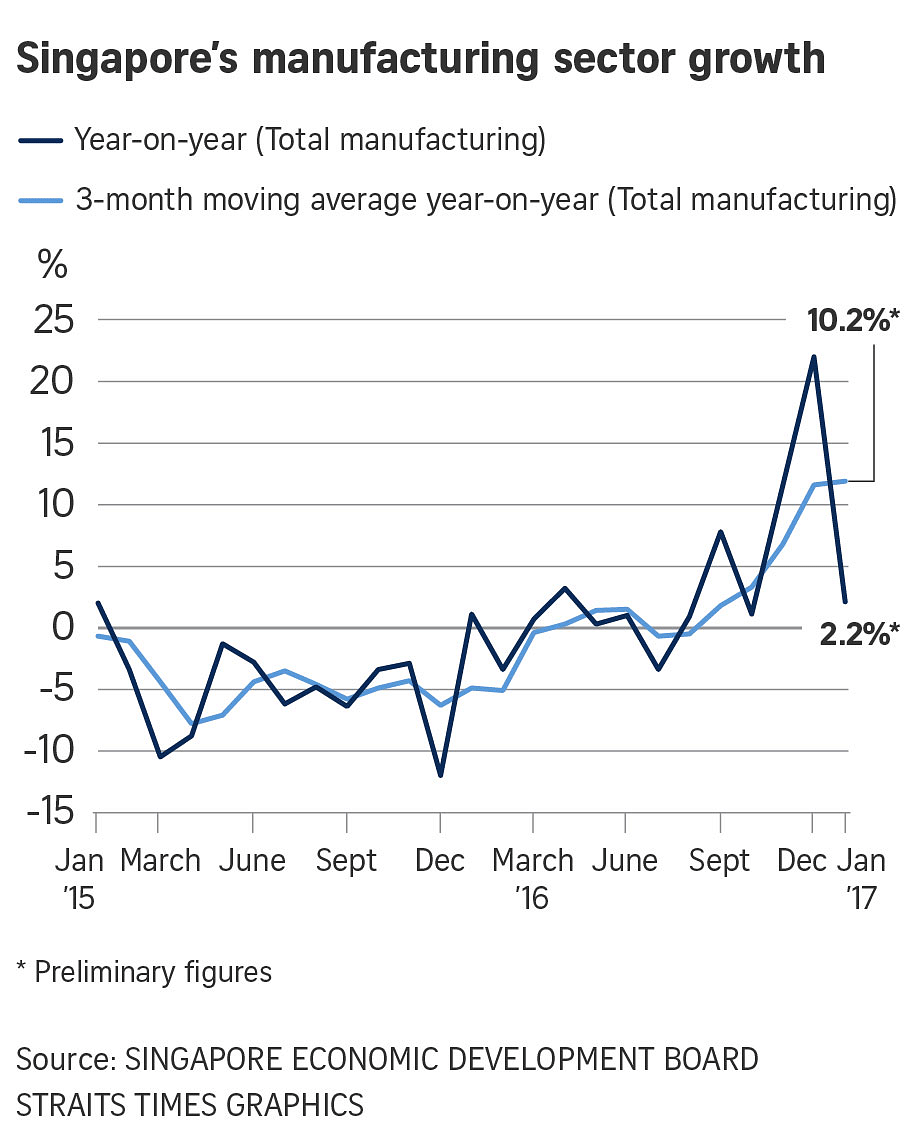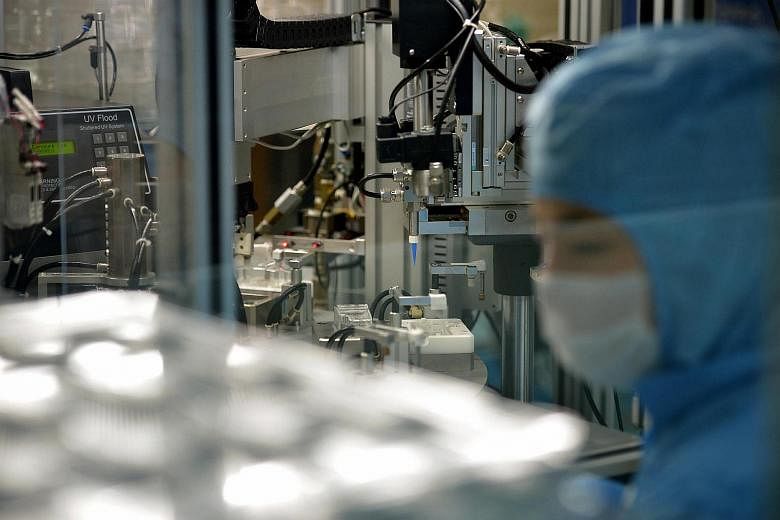SINGAPORE - Singapore's industrial production grew 2.2 per cent in January from a year ago, much less than expected as biomedical output contracted.
Analysts polled by Bloomberg expected output to expand 9.5 per cent year on year.
Production surged a revised 22.1 per cent in December, the strongest pace in five years, and 11.7 per cent in November - thanks to the underlying global shift toward new technologies contributing to the growth of electronics manufacturing.
The surprisingly strong year-end performance pushed factory output for 2016 to a 3.6 per cent growth over 2015.
Excluding the more volatile contribution from biomedical manufacturing, output in January grew 7 per cent, according to the figures released on Friday (Feb 24) by the Economic Development Board (EDB).

Compared to December, output in January fell 6 per cent, more than the 2.5 per cent decline expected in the Bloomberg poll. Excluding biomedical manufacturing, output decreased by a smaller 1.5 per cent.
"The reason why it's positive year-on-year and negative month-on-month is because December was exceptionally strong, so we saw it rising by 6.4 per cent month-on-month and we've had two consecutive months of over 6 per cent rise so this is a sequential correction", Mizuho Bank economist, Vishnu Varathan, told Reuters before the report.
The increase in January ouput was driven by the electronics and precision engineering clusters.
Output of the electronics cluster rose 14.8 per cent year on year in January, though this was down from the 49.2 per cent jump seen in December. The semiconductors and computer peripherals segments grew 25.8 per cent and 3.7 per cent respectively, while the rest of the electronic segments saw declines.
The precision engineering cluster grew 24 per cent year on year in January, up from 7.8 per cent growth in December, mainly due to higher export demand for semiconductor related equipment.
The biomedical manufacturing cluster's output declined 13.5 per cent, reversing from surges of 45 per cent in December and 34.6 per cent in November. The medical technology segment increased 5.7 per cent but the pharmaceuticals segment declined 18.3 per cent.
The general manufacturing industries cluster's output decreased 13.8 per cent, with all segments registering declines. The food, beverages & tobacco segment contracted 10.8 per cent due in part to fewer production days in January as a result of Chinese New Year.
The chemicals cluster's output grew 3.5 per cent, led by growth in the petroleum (20.7 per cent) and petrochemicals (17.4 per cent) segments, due in part to the low base last year where there were some plant maintenance shutdowns.
Output of the transport engineering cluster fell 3.8 per cent. The aerospace segment grew 27.5 per cent with higher repair and servicing jobs from the commercial airlines, but this was offset by continued weakness in the land transport (-3.9 per cent) and marine & offshore engineering (-18.9 per cent) segments.


